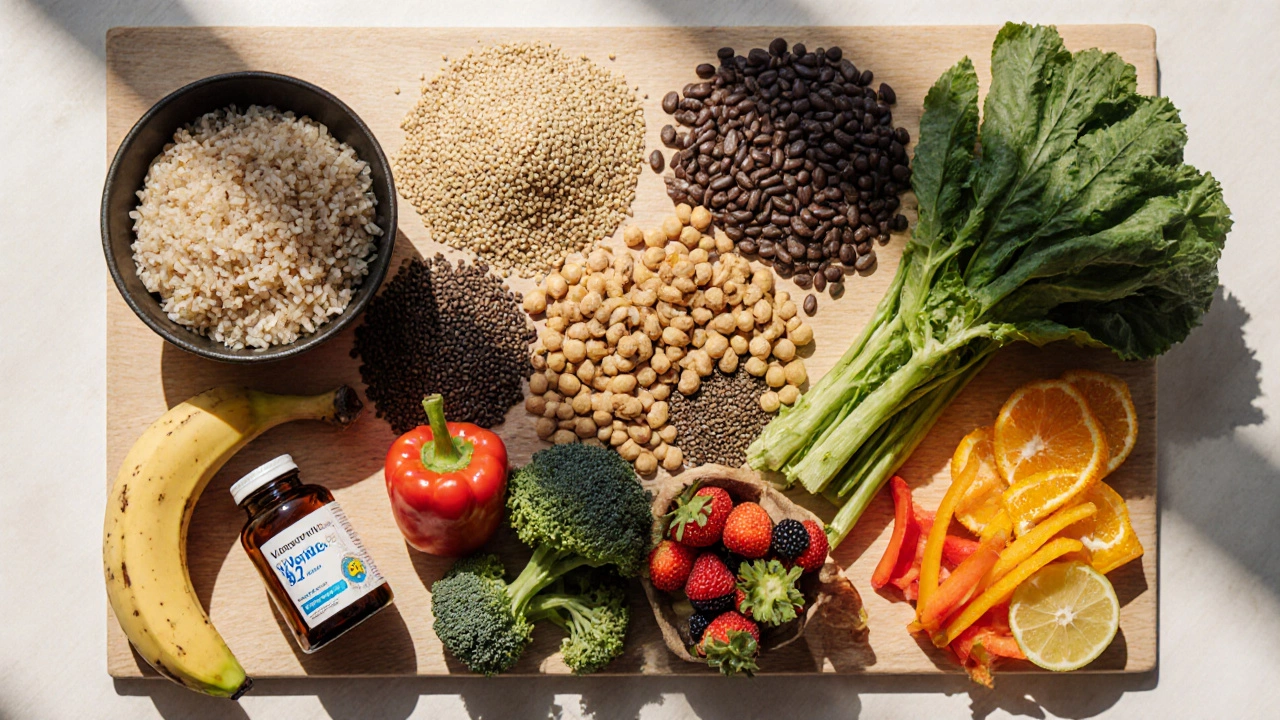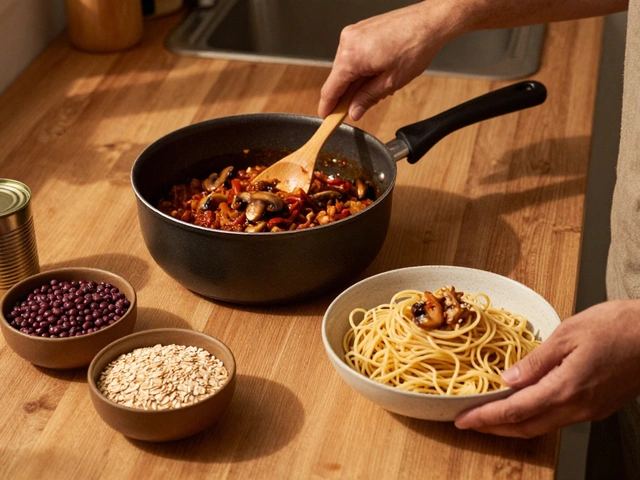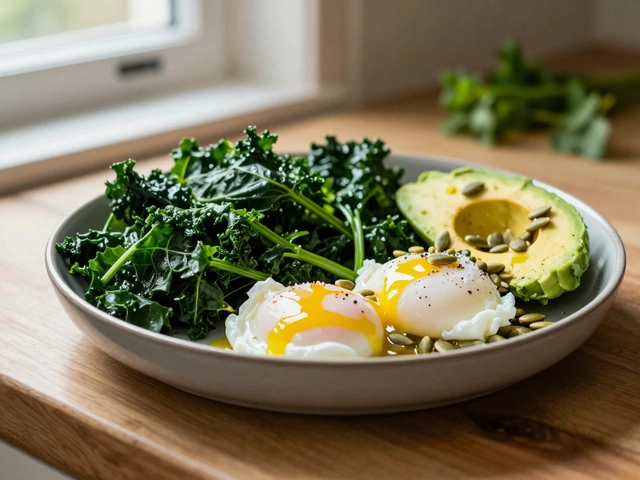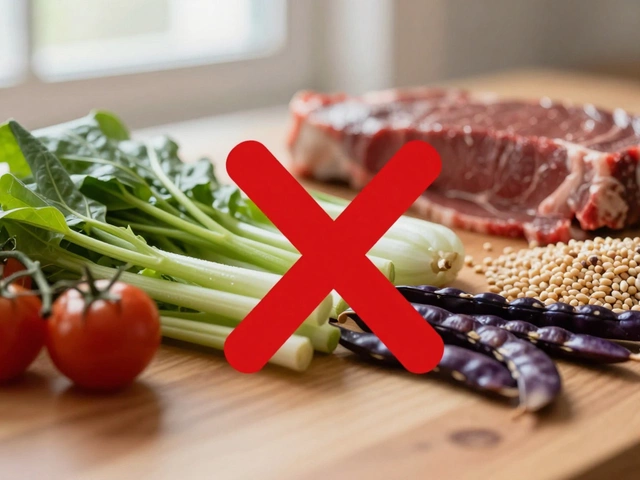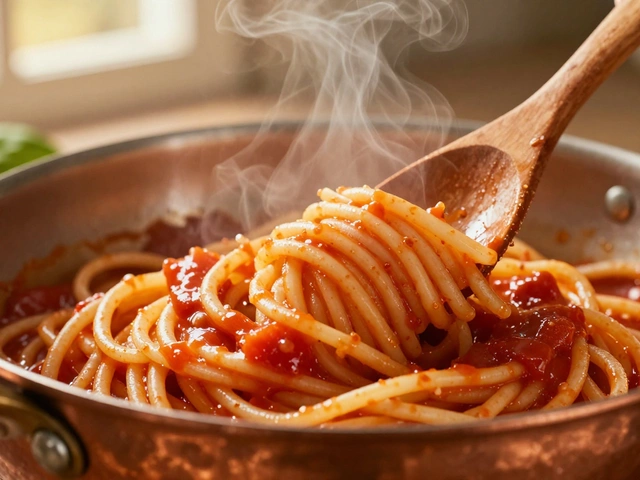Daily Nutrient Calculator
Calculate Your Basic Vegan Diet Needs
Your Daily Nutrient Plan
Ever wonder how simple it can be to eat completely plant‑based? The basic vegan diet strips away everything you don’t need and focuses on a handful of whole foods that cover your calories, protein, vitamins, and minerals. No fancy superfoods, no expensive specialty items-just the building blocks you can find at any grocery store.
What Exactly Is a Basic Vegan Diet?
Vegan diet is a way of eating that excludes all animal products, relying solely on plants for energy, protein, and nutrients. The goal of the most basic version is to meet daily nutritional needs while keeping meals quick, cheap, and easy to prepare. Think of it as the “starter kit” for anyone curious about going vegan or looking to simplify their current plant‑based routine.
Core Food Groups You’ll Need
These six categories form the backbone of every minimal vegan meal plan. Each provides a distinct set of nutrients, so together they create a balanced diet.
- Whole grains are the primary source of complex carbohydrates, fiber, and B‑vitamins (e.g., brown rice, oats, quinoa).
- Legumes are rich in plant‑based protein, iron, and zinc (beans, lentils, chickpeas).
- Nuts and seeds provide healthy fats, omega‑3 fatty acids, calcium, and additional protein (almonds, chia, flax).
- Fruits deliver natural sugars, vitamins (especially vitamin C), and antioxidants (bananas, berries, oranges).
- Vegetables supply the bulk of micronutrients like potassium, magnesium, and phytonutrients (leafy greens, cruciferous veg, peppers).
- Vitamin B12 supplement is essential because B12 is not reliably available from plant foods (cyanocobalamin tablets or fortified foods).
Key Nutrients and How to Get Them
Even a stripped‑down vegan diet can meet every macro‑ and micronutrient requirement if you plan wisely.
- Protein: Aim for 0.8g per kilogram of body weight. Combine legumes with grains (e.g., rice+beans) for a complete amino‑acid profile.
- Calcium: Choose fortified plant milks, tofu set with calcium sulfate, or a handful of almonds each day.
- Iron: Lentils, chickpeas, and pumpkin seeds are iron‑rich. Pair them with vitaminC‑rich fruit to boost absorption.
- Omega‑3: Ground flaxseed (1Tbsp) or chia seeds (2Tbsp) provide ALA, the plant precursor to EPA/DHA.
- Vitamin D: Sunlight is the cheapest source; during winter months supplement with 1000IU D3 (vegan‑derived).
- Vitamin B12: 25‑100µg daily from a reliable supplement prevents deficiency.
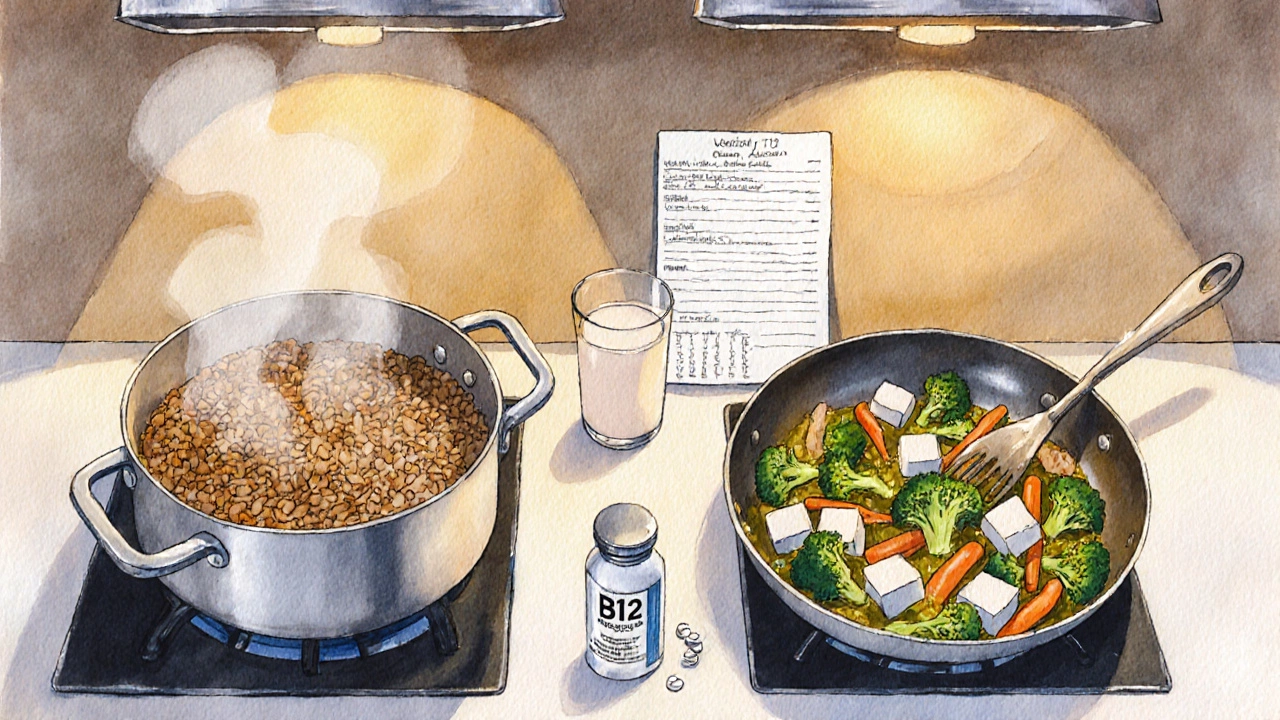
A Sample 7‑Day Meal Plan
The following plan assumes a 2,000‑calorie baseline. Adjust portions up or down based on personal needs.
| Day | Breakfast | Lunch | Dinner | Snack |
|---|---|---|---|---|
| Monday | Oatmeal with sliced banana, flaxseed, and soy milk | Quinoa salad with black beans, corn, cilantro, and lime | Stir‑fried tofu, broccoli, and brown rice | Apple + handful of almonds |
| Tuesday | Whole‑grain toast, peanut butter, and sliced strawberries | Lentil soup with carrots and kale, side of whole‑grain roll | Spaghetti with marinara sauce and chickpea “meatballs” | Carrot sticks with hummus |
| Wednesday | Smoothie (spinach, mango, chia seeds, oat milk) | Brown rice bowl with roasted sweet potato, black beans, and avocado | Coconut‑curry tempeh with mixed veg and quinoa | Orange + a few pumpkin seeds |
| Thursday | Chia pudding made with almond milk, topped with blueberries | Whole‑grain wrap with hummus, cucumber, shredded carrots, and lettuce | Bean chili (kidney, pinto, tomato) served over barley | Celery sticks + almond butter |
| Friday | Buckwheat porridge with raisins and cinnamon | Veggie sushi rolls (avocado, carrot, cucumber) with miso soup | Grilled portobello mushroom, quinoa pilaf, and steamed green beans | Peach + handful of walnuts |
| Saturday | Scrambled tofu with spinach, tomato, and whole‑grain toast | Greek‑style salad with tofu feta, olives, and bulgur wheat | Veggie stir‑fry (bell pepper, snap peas, carrots) over soba noodles | Mixed berries + a few sunflower seeds |
| Sunday | Pancakes made from oat flour, topped with maple syrup and sliced kiwi | Split pea soup with rye bread | Roasted cauliflower steaks, lentil mash, and sautéed kale | Grapes + a small piece of dark chocolate (vegan) |
Shopping List for the Week
Stick to the aisle basics and you’ll spend less than $70 (NZD) on groceries.
- Bulk oats, brown rice, quinoa, whole‑grain pasta, barley, soba noodles
- Canned black beans, lentils, chickpeas, kidney beans, split peas
- Firm tofu, tempeh, canned coconut milk
- Almond milk, soy milk, fortified plant milks
- Flaxseed, chia seeds, almonds, walnuts, pumpkin seeds
- Seasonal fruit: bananas, apples, berries, oranges, mango, kiwi
- Seasonal veg: leafy greens, broccoli, carrots, sweet potato, bell peppers, cucumber, tomatoes
- Vitamin B12 supplement (25µg tablets)
- Basic spices: salt, pepper, turmeric, cumin, chili powder, Italian herbs
Common Pitfalls and How to Avoid Them
Even a simple plan can go sideways if you ignore a few key details.
- Skipping B12: It’s the only nutrient that truly needs supplementation. Set a daily reminder.
- Relying on processed “vegan junk food”: Those can be high in sodium and low in nutrients. Keep whole foods front‑and‑center.
- Not eating enough calories: Plant foods are less energy‑dense. If you feel hungry, add an extra serving of nuts or a bigger grain portion.
- Ignoring iron absorption: Pair iron‑rich meals with vitaminC (e.g., lentils + orange slices).
- Missing omega‑3: One tablespoon of ground flaxseed daily covers most needs; consider algae‑based DHA if you’re an athlete.
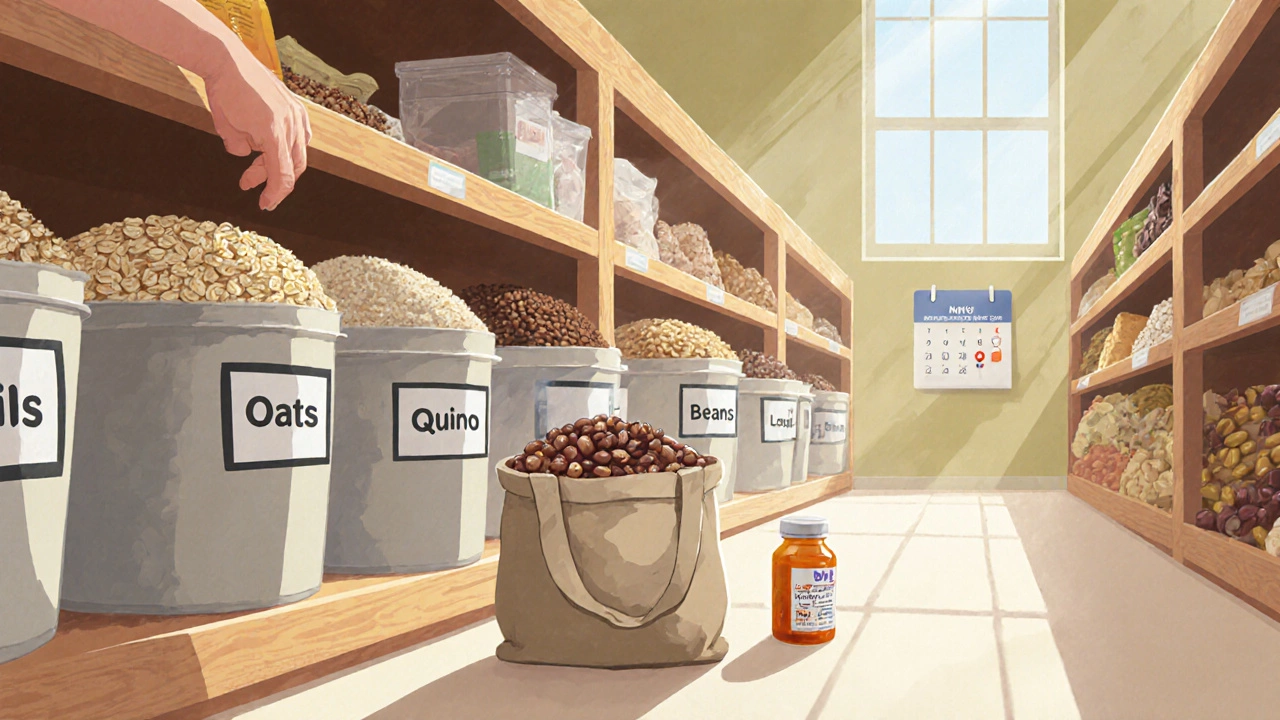
How to Transition Quickly
If you’re currently eating a mixed diet, try the following three‑step switch:
- Remove all animal products from your kitchen: Throw out fresh meat, fish, and dairy; keep only plant‑based staples.
- Batch‑cook grain‑legume combos: Cook a big pot of brown rice and a separate pot of lentils on Sunday. Mix‑and‑match throughout the week.
- Add a daily B12 tablet: Keep a bottle at the front of your pantry as a visual cue.
When to Seek Professional Advice
Most healthy adults can thrive on the basic vegan diet without a dietitian, but consider a professional if you:
- Are pregnant, breastfeeding, or have a medical condition (e.g., anemia, thyroid issues)
- Have a history of nutrient deficiencies
- Plan to engage in high‑intensity athletic training
A registered dietitian can help fine‑tune portion sizes and ensure you’re covering every micronutrient.
Frequently Asked Questions
Do I need to count protein on a basic vegan diet?
You don’t have to count every gram, but aim for 0.8g per kg of body weight. Combining beans with grains makes a complete protein, so a few servings a day usually cover it.
Can I get enough calcium without dairy?
Yes. Fortified plant milks, tofu set with calcium sulfate, almonds, and leafy greens like bok choy provide ample calcium. Aim for 1,000mg per day.
Is a B12 supplement really necessary?
Absolutely. B12 isn’t reliably present in plant foods, and deficiency can cause nerve damage. A cheap tablet (25µg) taken daily is safe and effective.
How much does a week of basic vegan groceries cost?
In most supermarkets, staying with bulk grains, beans, seasonal produce, and a modest amount of nuts keeps the bill under $70NZD for a single adult.
Can I follow this diet while training for a marathon?
Yes, but you’ll need to increase overall calories and pay extra attention to iron, B12, and electrolytes. Adding extra servings of whole grains and legumes, plus a sports drink with sodium, helps sustain long‑distance training.
